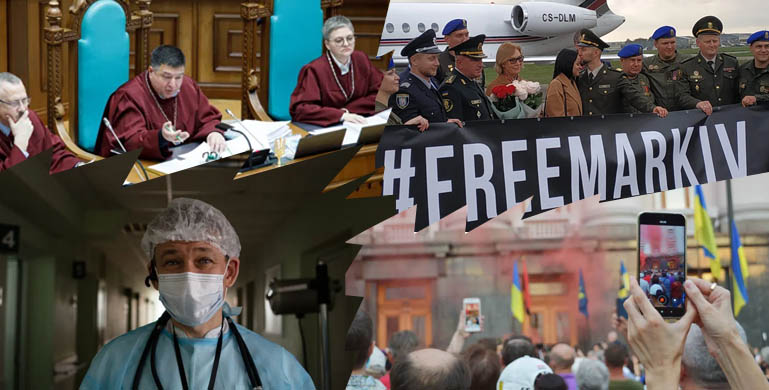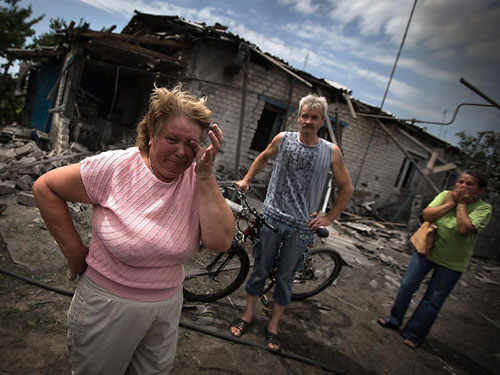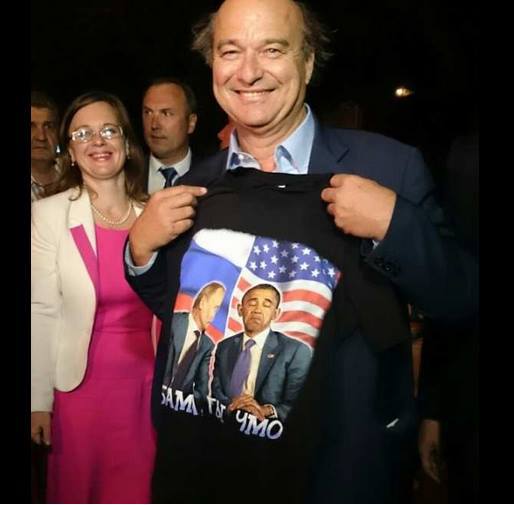Ukraine’s parliament voted in favor of President Volodymyr Zelenskyy’s decision to dismiss all the Central Election Commission (CEC) squad. The president accused the CEC members of bias and violating procedures during the last elections. The CEC refutes the allegations. NGOs deeply involved in the election process say that there is no objective reason for such a decision and raise concerns about its future impact. Among them would be the total discrediting of the body and calling into question the results of any more conflicting elections. The current CEC squad hasn’t worked for even a year. Ukrainian and international observers haven’t found systematic violations in the work of the CEC during the last presidential and parliamentary elections. So why was it dismissed?
Ukraine has a bad legacy of politically biased CECs
When a country has more early elections than regular ones, and fights between political forces are more entertaining than football, the CEC becomes not just a boring bureaucratic institution. Although its role indeed should be more technical, the requests it receives during the election process often make headlines in the most popular media.
Ukraine remembers times when, during the Orange Revolution, the CEC was the key player which nearly led Viktor Yanukovych, the notorious president who ran away to Russia during the Euromaidan Revolution in 2014, to power back in 2004, ignoring the enormous amount of violations. The Orange Revolution protesters blamed the CEC for playing on Yanukovych's side. But societal pressure turned history around. Re-elections were held and Yanukovych’s then-opponent Viktor Yuschenko became president.
A new CEC appointed in 2018
Thus, the CEC members' dependence on politicians was a burning question for Ukraine. During Petro Poroshenko’s presidency and the previous parliament’s term, there was an additional troubling question - the legitimacy of the CEC squad, as they continued working despite the expiration of the terms of their powers in 2014. The appointment of the new members was postponed numerous times, being explained either by technical obstacles, or the lack of political will.
The situation was resolved only in September 2018, just before the presidential and parliamentary elections - new members were appointed, and the 2019 presidential and parliamentary elections were held without major violations. Both led to a landslide victorie for Zelenskyy - he became president with over 73% of votes, and his Servant of the People party now holds a single-party majority in Parliament. Despite minor issues, both elections were recognized as democratic by international observers. Thus, the new CEC had played its role well.
“In 2014-2018, when the previous CEC squad was unacceptably not rotating, trust towards the CEC was significantly undermined. But after two election cycles, the outcome of which is trusted by an absolute majority of Ukrainian citizens, the image of the high body of the election administration was partially renewed,” OPORA, an NGO involved in the elections, stated.
Applying a quota principle for the CEC?
According to the law, it is the Verkhovna Rada (Parliament) which appoints and terminates the powers of the members of the Commission upon the submission of the president of Ukraine. The president in his turn takes into consideration the proposals of the parliamentary factions and groups. However, the way how the CEC is formed might also change together with the decision on the dismissal.
Before the parliament vote, Oleksandr Korniyenko, deputy head of Zelenskyy’s Servant of the People party, told journalists that his faction intends to suggest a quota principle of CEC formation to the parliament. Basically, this might mean that Zelenskyy’s Servant of the People which forms the majority in parliament will also have the majority in the CEC. According to Korniyenko, if the factions would suggest more candidates than places in the CEC, a rating voting for each candidate might take place.
Presidential accusations and NGO objections
The CEC held two elections in 2019, both of which were assessed as democratic by international observers, and which led Zelenskyy and his party to power. So what was wrong with its work?
According to the president’s draft decree, during the early parliamentary election campaign, the CEC showed a lack of balance or even political prejudice, which led to courts recognizing its actions unlawful. Also, the president stressed that over 20 CEC decrees to reject candidates' registration were overturned by courts.
Before the voting took place, OPORA and the Committee of Voters of Ukraine, the NGOs monitoring the election process and involved in advocating election-related legislation, released statements stressing that there are no reasons to dismiss the CEC.
In its statement, OPORA stressed that Ukraine's highest election administration organ was being turned into a hostage of the political conjecture, and that the formation of its commissions under the influence of the president of parliamentary majority will bring its neutrality and ability to act within the law and not party interests under question.
The Committee of Voters of Ukraine notes that the violations presented in the president’s decree are not systematic or gross. The statement says that the majority of the arguments of the petition are based on the number of court decisions.
“Such court decisions indeed took place, however, we should not ignore the fact that during the election campaign there were numerous situations when the decisions of different court institutions not only canceled the CEC decrees, but directly contradicted each other. This was caused also by the imperfection of the election legislation.”
In this regard the Committee of Voters pointed that the Law on the parliamentary elections has to be clarified, and that Ukrainian courts can't be the ultimate jury.
“Moreover, we have to consider that quite often the court decisions during election campaigns can be directly or indirectly made in the interests of particular political groups.”
According to the NGO, the situation rather points to a large scale problem - discrepancies in interpreting electoral legislation by CEC representatives and the courts.
The CEC also released a statement addressing all the accusations in the president’s decree. Despite all the concerns, the CEC was dismissed with 341 votes (out of a total 422). Ex-President Poroshenko’s European Solidarity party and the rockstar Sviatoslav Vakarchuk’s Voice (Holos) unanimously voted against.
After the vote, OPORA came up with another statement pointing out that the practice of a politically motivated rotation of the CEC members violates international standards in election administration and contradicts the provisions of national legislation regarding the seven-year term of powers of the Commission’s members.
The NGO also voiced its demands to the president, parliament, factions and groups. They include:
- Ensuring a transparent and inclusive process of submitting candidates from factions and groups to the president.
- Ensuring that the proposals of all non-parliamentary factions and groups in the new composition of the CEC are taken into account on the basis of absolute or proportional equality.
- The president’s public commitment to improve the legislation on the CEC, including the appointment and suspension of powers.
The NGO also pointed it's necessary to cancel provisions allowing an early termination of the entire CEC altogether.
After the voting, Ruslan Stefanchuk, the first deputy head of parliament, told journalists that the squad of the next CEC will be appointed according to the current legislation and that the quota principle remains a topic for discussions.
Firing the CEC to hold elections in occupied Donbas?
The news on the CEC's dismissal comes among various signals that the Zelenskyy administration is preparing to “make peace” in occupied Donbas on Russia’s terms, which would mean legitimizing the Russian-backed “Luhansk and Donetsk People’s Republics” and readmitting them to Ukraine in such a way as to preserve effective Russian control over the zone, allowing Russia endless opportunities to interfere in Ukrainian affairs while making Ukraine pay for the whole game.
This can be achieved by going by the Russian scenario of implementing the Minsk agreements - holding elections in occupied Donbas before Ukraine achieves control over the border, and before Russian troops are withdrawn - something that Russia consistently refuses to do.
One of these signals was the statement of Ukraine's Foreign Minister Vadym Prystaiko on the sidelines of the YES conference on 13 September that Ukraine will aim to hold local elections throughout the whole country, including the occupied territories of Donetsk and Luhansk oblasts, simultaneously.
Following a landslide victory in parliament, Zelenskyy’s administration had toyed around with the idea of holding snap local elections in order to gain even more power in the regions. Taking this into account, Prystaiko’s statement can be interpreted as an agreement to hold elections in occupied Donbas before a Russian withdrawal. And some experts, along with ex-President Petro Poroshenko, relate the decision to dismiss the CEC to preparations for such a scenario.
“It is Zelenskyy’s attempt to check the ability of the parliament to vote for the future constitutional changes and the law on the features of local self-governments in ORDLO [territories of Donbas uncontrolled by the state],” Deutsche Welle quotes Yevhen Mahda, executive director of the Center for Social Relations.
Another reason for connecting the CEC dismissal with a potential capitulation to Russia in occupied Donbas is the Commission's central role in organizing referendums. And a referendum on agreements with Russia is an idea frequently voiced by representatives of Zelenskyy’s circle.
Oleksandr Chernenko, a former MP of Petro Poroshenko’s Bloc who once headed the Committee of Voters of Ukraine, expects that the next step of Zelenskyy’s party will be passing the Law on Referendums with the extended powers of the CEC. In effect it would be possible to to legitimize new political agreements on Donbas through an all-Ukrainian referendum.
“The fact that the CEC acted independently is good for the country, but apparently is not favored by the new authorities. They want to receive a more loyal and obedient CEC on the eve of local elections and possible referendums in ORDLO,” Chernenko told DW.





